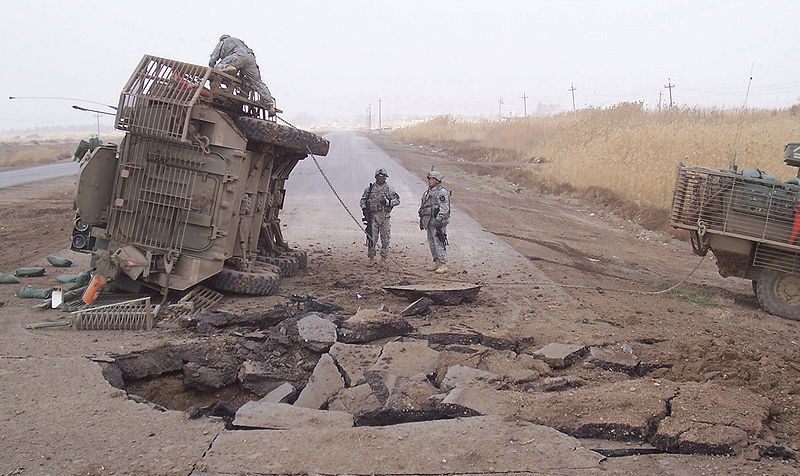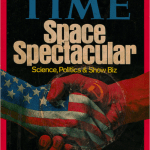During the summer of 2016, we will be bringing together our previously published articles, book reviews, and podcasts on key themes and periods in the history of the USA. Each grouping is designed to correspond to the core areas of the US History Survey Courses taken by undergraduate students at the University of Texas at Austin.
Shaherzad Ahmadi traces the history of violence in Iraq stemming from the oft overlooked Iran-Iraq War (1980-88)
Yoav Di-Capua explores the history of ISIS in his review of Abdel Bari Atwan’s Islamic State: The Digital Caliphate (University of California Press, 2015)
Mark Atwood Lawrence examines the value of drawing lessons from history in Debating the Vietnam and Iraq Wars.
Celeste Ward Gventer asks Was Iraq War Worth It?
Jonathan Hunt discusses Iran’s Nuclear Program and the History of the IAEA.
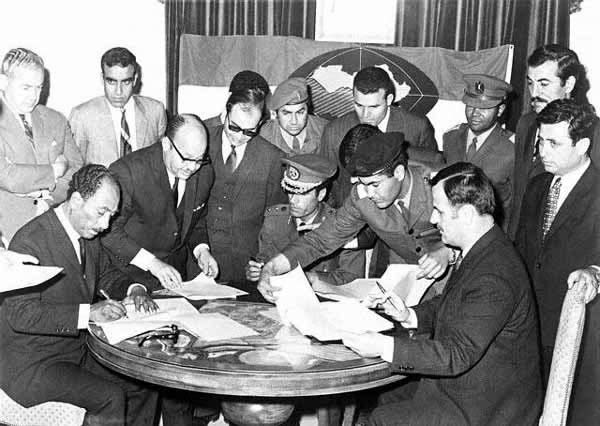
Syria´s President Hafez al-Asad (sitting on the right side) signing the Federation of Arab Republics in Benghazi, Libya, on April 18, 1971 with President Anwar al-Sadat (stting left) of Egypt and Colonel Muammar al-Qaddafi of Libya (sitting in the centre). The agreement never materialized into a federal union between the three Arab states. Photo Credit: The Online Museum of Syrian History via Wikimedia Commons.
Chris Dietrich examines connections between the US and Libya in Oil and Weapons in Gaddafi’s Libya and Jeremi Suri discusses the The Death of Qaddafi.
Toyin Falola turns the lens on Africa and the United States
Recommended Books:
Emily Whalen recommends Faith Misplaced: The Broken Promise of US-Arab Relations, 1820-2003, by Ussama Makdisi (PublicAffairs: 2010).
Clay Katsky reviews Kissinger’s Shadow: The Long Reach of America’s Most Controversial Statesman, by Greg Grandin (Metropolitan Books: 2015).
Kristin Tassin suggests Contending Visions of the Middle East: The History and Politics of Orientalism, by Zachary Lockman (Cambridge University Press, 2004).
Lady Jane Acquah discusses Securing Africa: Post-9/11 Discourses on Terrorism, edited by Malinda S. Smith (Ashgate: 2010).
And here are some Great Books on Islam in American Politics & History
Film and Media:
Christopher Rose asks What’s Missing from ‘Argo’ (2012)?
Emily Whalen offers Historical Perspectives on Michael Bay’s 13 Hours: The Secret Soldiers of Benghazi (2016)
On 15 Minute History
The U.S. and Decolonization after World War II
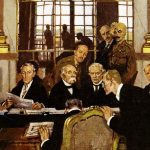 Following World War II, a large part of the world was in the hands of European powers, established as colonies in the previous centuries. As one of the nations that came out on top of the geo-political situation, the United States was looked to with hope by aspiring nationalist movements, but also seen as a potential source by European allies in the war as a potential supporter of the move to restore the tarnished empires to their former glory. What’s a newly emerged world power to do?
Following World War II, a large part of the world was in the hands of European powers, established as colonies in the previous centuries. As one of the nations that came out on top of the geo-political situation, the United States was looked to with hope by aspiring nationalist movements, but also seen as a potential source by European allies in the war as a potential supporter of the move to restore the tarnished empires to their former glory. What’s a newly emerged world power to do?
Guest R. Joseph Parrott takes a look at the indecisive position the United States took on decolonization after helping liberate Europe from the threat of enslavement to fascism.
The International Energy Crisis of the 1970s
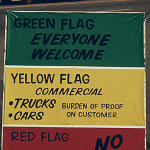 Most Americans probably associate the 1973 oil crisis with long lines at their neighborhood gas stations, but those lines were caused by a complex patchwork of international relationships and negotiations that stretched around the globe.
Most Americans probably associate the 1973 oil crisis with long lines at their neighborhood gas stations, but those lines were caused by a complex patchwork of international relationships and negotiations that stretched around the globe.
Guest Chris Dietrich explains the origins of the energy crisis and the ways it shifted international relations in its wake.
Roundtable: Antiquities in Danger
 Straight from the headlines: ISIS destroys the temple of Bal at Palmyra. Looters steal friezes from Greco-Roman sites in Ukraine under the cover of conflict. A highway is built through an ancient Mayan city in the Guatemalan highlands, the legacy of decades of near-genocidal internal conflict. Why is the loss of human patrimony important, especially in the context of the loss of lives? How can we begin to explain why both are worthy of our consideration? And what can high school or college educators and their students do about it?
Straight from the headlines: ISIS destroys the temple of Bal at Palmyra. Looters steal friezes from Greco-Roman sites in Ukraine under the cover of conflict. A highway is built through an ancient Mayan city in the Guatemalan highlands, the legacy of decades of near-genocidal internal conflict. Why is the loss of human patrimony important, especially in the context of the loss of lives? How can we begin to explain why both are worthy of our consideration? And what can high school or college educators and their students do about it?
Our first roundtable features three experts from the University of Texas who’ve taken the destruction of sites where they’ve worked and lived seriously, and are working to raise awareness of the importance of antiquities in danger around the world, and share simple steps to raise awareness about the problem and how to get involved.
Islamic Extremism in the Modern World
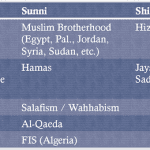 In this episode, we tackle “that pesky standard” in the Texas World History course that requires students to understand the development of “radical Islamic fundamentalism and the subsequent use of terrorism by some of its adherents.” This is especially tricky for educators: how to talk about such an emotional subject without resorting to stereotypes and demonizing? What drives some to turn to violent actions in the first place?
In this episode, we tackle “that pesky standard” in the Texas World History course that requires students to understand the development of “radical Islamic fundamentalism and the subsequent use of terrorism by some of its adherents.” This is especially tricky for educators: how to talk about such an emotional subject without resorting to stereotypes and demonizing? What drives some to turn to violent actions in the first place?
Guest Christopher Rose from UT’s Center for Middle Eastern Studies offers a few suggestions and some background information on how to keep the phenomenon in perspective.
You may also like these articles on the history of Islam in America:
Denise Spellberg’s article and book on Thomas Jefferson’s Qur’an and episode on 15 Minute History.
Reem Elghonimi reviews A History of Islam in America: From the New World to the New World Order, by Kambiz GhaneaBassiri (2010).
